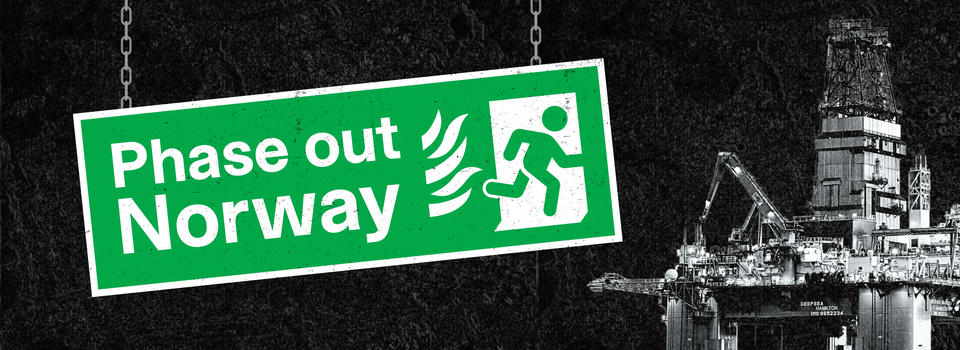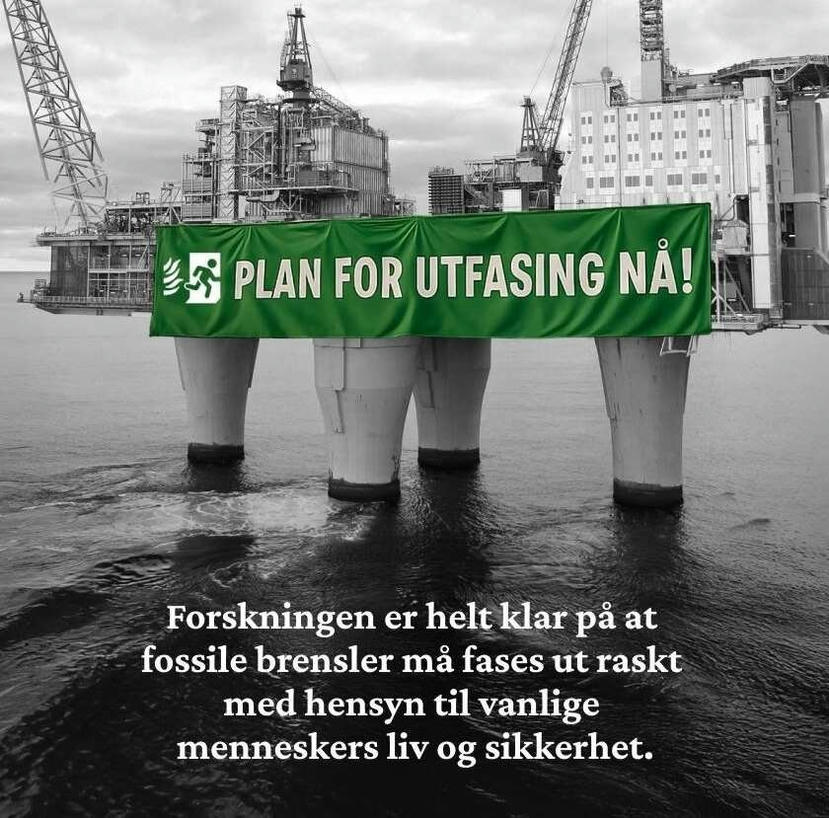JOIN OPEN MEETINGS AND COURSES
A number of meetings, courses and talks are being arranged ahead of the actions.

Fossil fuels must be phased out
The climate crisis has killed more than 4 million people since 2000, it is estimated. (a conservative figure that leaves out several things like the spread of infectious diseases)
If (or when) the world reaches 2 degrees Celsius of warming (could happen in about 10 years) scientists estimate that it will lead to 1 billion deaths.
The world’s rich countries are overwhelmingly mostly to blame for the climate crisis and fossil fuels are the main cause.
The destruction and mass death could have been avoided, but the world’s most privileged and powerful have chosen to ignore the clear message of science: Fossil fuels must be phased out as soon as possible.
The largest action against Norwegian oil ever
From August 11 to 22 this year, XR Norway and Nordic Climate Justice Coalition campaigned with the demand Phase out Norway! We created the largest civil disobedience actions against Norwegian oil in history.
The amazing efforts of several hundred activists from home and abroad changed the Norwegian election campaign. Climate and Norwegian oil became part of the conversation!
XR Norway does not intend to give up. No one should be able to forget what we demand: The politicians must present a plan!
Join us in fighting for justice! Join us in resisting fossil fuels!
Facts versus oil myths
Below you can read the truth about Norwegian oil and gas policy. If you want to see the references, you can find them HERE.
Contribute financially
Become a member
Look at our events
contact us
arendal
AUGUST 11 - 13th
Saturday 9.8:
Join us in setting up tent camp or get a bed in a friendly home.
Sunday 10.8:
Food and social activities, training in civil disobedience, action briefing.
Monday, Thuesday, Wednesday:
We are ready to be seen and heard!
bergen
AUGUST 18 - 19th
Saturday 16.8:
We arrive at the camp.
Sunday 17.8:
Food and social activities, training in civil disobedience, action briefing.
Monday/Tuesday:
Action.
Oslo
AUGUST 18 - 22nd
SUNDAY 17.8:
16.00: Art exhibit opening at gallery Podium “Phase Out Norway” Marte Eknæs, Patricia Carolina and Ina Hagen are featured artists. (Place: Hausmania. Entry Hausmansgt. 34)
MONDAY 18.8:
Eventyrbroa (Anker bridge) 11:00 - 20:30
Throughout the day: Don’t Panic. Organize: Interact with activist groups and organisations. Talk to people from XR Norway, Folk mot fossilmakta, Beskytt demokratiet, Mothers Rebellion, etc.
Throughout the day: Harpelavvo - (Harp music in tent down at the river - come to quiet down) - Silk screen print. Climate emotions wheel. Mythbusting with art and science on the bridge of folk myths (Eventyrbroa).
16.30 - 17.30: Circle for a plan for #phaseoutnorway arranged by Mothers Rebellion.
18.00 - 19.00: Fossil-free dinner - free vegan dinner for up to 100 persons, mingling with people who want a system change.
20.00: Sivil ulydighet (Civil disobedience) by director Thomas Østbye (at Vega scene)
THUESDAY 19.8:
Eventyrbroa (Anker bridge) 08:30 - 18:30
Throughout the day: Don’t Panic. Organize: Interact with activist groups and organisations. Talk to people from XR Norway, Folk mot fossilmakta, Beskytt demokratiet, Mothers Rebellion, etc.
Throughout the day: Harpelavvo - (Harp music in tent down at the river - come to quiet down) - Silk screen print. Climate emotions wheel. Mythbusting with art and science on the bridge of folk myths (Eventyrbroa).
08.30 - 09.30: Civil Disobedience for Breakfast (In norwegian): moderated by Pernille from XR. Conversation with: Fritjof Klareng Dale (Folk mot fossilmakta), Rami Samandar (Palestine movement), etc (in front of Kaffebrenneriet by the north end og the bridge)
15.30 - 17.30: Poets’ Corner: Various short contributions. Ingrid Liland, Tormod Fuglestad, Wera Sæther, Greata, Karoline Hem Wiken, Victoria
18.30: Film Den siste våren (The Last Spring) at Vega Scene. Post-film conversation with filmmaker Franciska Eliassen and Esther Hjerrild from Folk mot fossilmakta. Pernille from XR is moderating.
WEDNESDAY 20.8:
Throughout the day:
Harpelavvo - (Harp music in tent down at the river - come to quiet down) - Silk screen print. Climate emotions wheel. Mythbusting with art and science on the bridge of folk myths (Eventyrbroa).
20.00: “Climate Collapse March” - We walk from Kulturkirken Jacob to Karl Johans gate.
THURSDAY 21.8:
Carl Johan camp
08.30 - 09.30: Climate breakfast with visiting activists - What brings you here? Moderated by Marion from XR.
11.30: Wera Sæther reads from her forthcoming collection Jeg angrer ikke raseriet (I do not regret my rage).
12.00: Consert with Sami activist Ella Marie Hætta Isaksen.
15.00: Vinn, vinn, verden Demo (Eidsvoll plass).
17.00 - 19.00: at Universitetsplassen - People’s Assembly “The movement we need”. *We do not yet have a peoples’ movement that allows us to respond appropriately to genocide and ecological collapse and to help protect what we need for life and in respect to human rights. Here we want to engange in conversation with the wider movement - especially the movement for Palestine, for climate and Sami indigenous rights. Panel: Line Katheeb, Leader of Palestinakomiteen, NiillasBeaska, Norske samers riksforbund, Greta Thunberg, climate- and Palestine activist and Michelle A. Tisdel, social antropologist.
18.30: Film: Morgendagens helter (Vega scene). Post-movie talk with director Mariken Halle, Julie Forchhammer from Klimakultur.no and Jonas Kittelsen from XR.
FRIDAY 22.8:
Middelalderparken (by the pond):
12.00: March from middelalderparken to the city center.
Eventyrbroa (Vest bank of the Aker river):
19.00 - 23.00: Dance off with DJ’s: Dj Friendly & friends; Dj Peter Greenwood Aka PeterPan; WIKEN, aka Dj Fruitloops - we celebrate our resistance and life!
A number of meetings, courses and talks are being arranged ahead of the actions.
Statistics Norway (SSB) points out that there are few negative economic consequences. In SSB’s example/alternative showing the fastest reduction in activity on the Norwegian continental shelf, this will lead to:
Some important global consequences:
A clear plan for phasing out has been requested repeatedly. There is still no majority in the Storting to stop oil and gas exploration on the Norwegian continental shelf.
